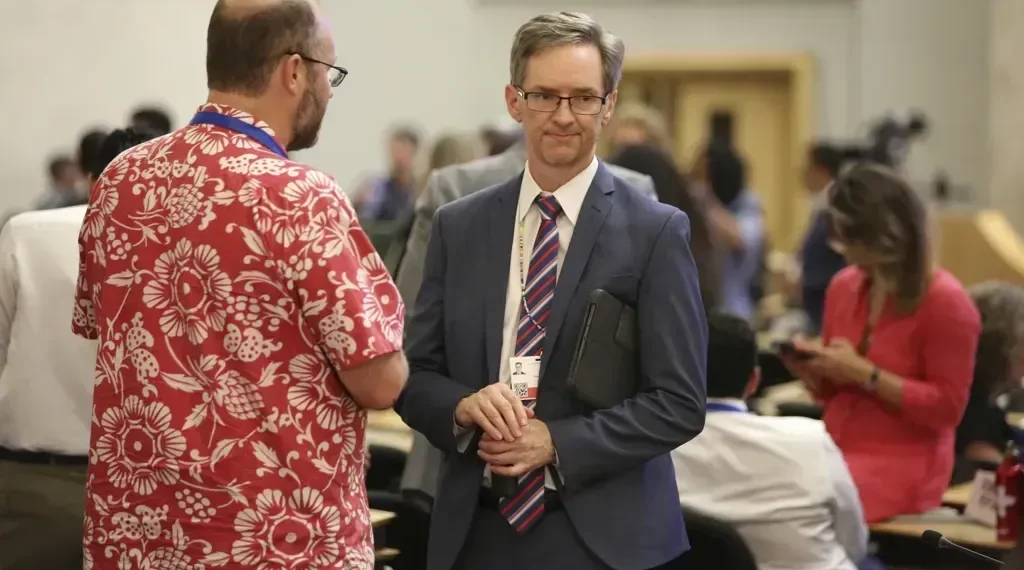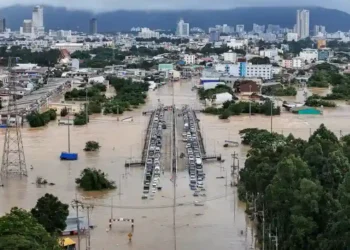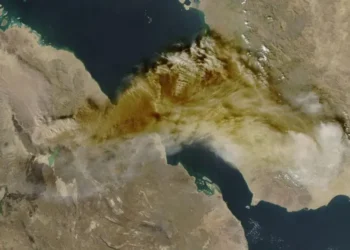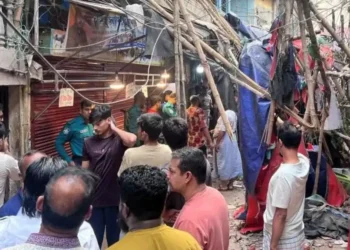Nations Struggle to Reach Agreement on Global Plastic Pollution Treaty
Published Time: 08-15-2025, 14:00
Negotiations on a global treaty to end plastic pollution are concluding in Geneva, but disagreements over production limits and chemical regulations remain unresolved. Delegates from 184 countries are pushing for action, while some nations and industry groups resist binding restrictions. The outcome could shape global environmental and health policies for decades.
Last-Minute Delays Highlight Deadlock
GENEVA — Negotiations aimed at establishing a global treaty to combat plastic pollution extended into Friday after last-minute delays. Delegates had anticipated a new draft of the treaty on Thursday, the final scheduled day of talks, but consultations continued until nearly midnight.
Luis Vayas Valdivieso, chair of the negotiating committee, briefly convened the assembly but adjourned within a minute, citing ongoing revisions. The short session left many delegates visibly surprised, though meetings were scheduled to resume the following day.
Norway’s Minister for Climate and Environment, Andreas Bjelland Eriksen, welcomed the extension. “Prolonging the meeting is better than ending it without progress,” he said. Norway, alongside several other nations, has expressed concerns that the current draft of the treaty is inadequate.
Current Draft Falls Short on Production Limits
The draft treaty released on Wednesday notably avoids limiting plastic production or regulating chemicals used in plastics. Instead, it focuses on areas of broad agreement, such as reducing problematic plastic products, promoting recyclable and reusable designs, and improving waste management systems.
The treaty encourages nations to commit to ending plastic pollution but stops short of imposing legally binding global requirements.
French President Emmanuel Macron criticized the draft for its lack of ambition, stressing that “agreeing to a global treaty against plastic pollution is our opportunity to make a difference.” In a LinkedIn post, he called on delegates to adopt measures that meet the urgency of environmental and health concerns, saying, “For our health. For our environment. For our children.”
Calls for a Comprehensive Approach
Approximately 100 countries are pushing for production limits in addition to cleanup and recycling efforts. Eriksen emphasized Norway’s commitment to a robust treaty, stating, “We will work with every single hour left to bring this to a positive conclusion, because the world needs a plastics treaty now.”
Global plastic production currently exceeds 400 million tons annually, and without policy interventions, it could rise by 70% by 2040. Many countries insist that toxic chemicals in plastics must also be addressed to prevent long-term environmental and health risks.
However, powerful oil and gas-producing nations and the plastics industry oppose production caps, favoring a treaty focused on waste management, reuse, and recycling. These groups have raised objections to the draft text, citing unclear scope and definitions.
Diverging National Positions
Luay Almukhtar, head of Iraq’s delegation, opposed measures to reduce polymer production, arguing that such restrictions could harm society and the economy. Nevertheless, he expressed support for curbing certain chemical additives and reducing single-use plastics, which indirectly limits production. “Plastic pollution is a big environmental issue, and we have to work together to defeat it,” he said, emphasizing a balanced approach between environmental protection and economic interests.
Camila Zepeda of Mexico’s Ministry of Environment and Natural Resources highlighted the difficulty of reaching production limits at this stage. She stressed, however, the importance of including stronger provisions on sustainable production and consumption. Mexico and Switzerland are advocating for specific language in the treaty addressing problematic plastics, chemical additives, and single-use items.
“We are on the final stretch, but we remain hopeful and committed to strengthening the text to ensure it has a meaningful impact,” Zepeda said.
Sixth Round of Negotiations
This meeting marks the sixth round of treaty talks and the tenth day of negotiations. Last year’s discussions in South Korea were expected to be the final round but ended in December without an agreement over production restrictions. Many delegates worry that the outcome in Geneva could mirror that impasse.
Sivendra Michael, Fiji’s permanent secretary for environment and climate change, expressed frustration over prolonged talks. “It is costly, unfair, and tedious to travel so far repeatedly to restate positions,” he said. Michael argued that this meeting should finalize a treaty acceptable to all parties.
Conversely, Hiwot Hailu, chief of staff for Ethiopia’s Environmental Protection Authority, suggested that further meetings may be necessary to resolve issues related to financing and addressing the full lifecycle of plastics. “It is better to have no treaty than a weak one,” Hailu said, highlighting the need for comprehensive measures encompassing production, design, and disposal.
Global Momentum for Lifecycle Approach
European Commissioner for the Environment Jessika Roswall stressed the importance of a treaty covering the full lifecycle of plastics. “A weak, static agreement serves no one,” she stated. Roswall emphasized that the treaty must be adaptable to evolving scientific knowledge and capable of addressing environmental and health risks associated with plastics.
Despite disagreements, delegations expressed cautious optimism that negotiations could yield a substantive agreement. Many see the treaty as a critical opportunity to curb the environmental and health impacts of plastics worldwide.
Key Challenges Ahead
The negotiations face two primary challenges:
- Production Limits: Countries advocating for reductions in plastic manufacturing argue that current and projected growth in production is unsustainable. Critics, including industry groups, argue that limiting production could have economic consequences and prefer focusing on recycling and waste management.
- Chemical Regulation: Plastics contain thousands of chemical additives, many of which are toxic. While some countries insist these must be controlled within the treaty, others worry about economic impacts and technical feasibility.
With over 600 organizations participating alongside national delegations, these talks represent the most extensive global effort to date to tackle plastic pollution comprehensively. The next few hours in Geneva are expected to determine whether countries can reconcile their differences and adopt a meaningful, legally binding treaty.
Outlook
As the Geneva talks conclude, the world awaits a treaty that could shape plastic policy for decades. While challenges remain, many delegates are determined to secure an agreement that addresses both environmental protection and economic realities.
Eriksen of Norway summarized the sentiment of many negotiators: “We will remain flexible, ambitious, and committed until the very end. The world needs this treaty, and we owe it to future generations.”
The outcome of these negotiations will influence not only global environmental policy but also public health, industrial practices, and the fight against climate change, as nations aim to manage the mounting crisis of plastic pollution.
This article was rewritten by JournosNews.com based on verified reporting from trusted sources. The content has been independently reviewed, fact-checked, and edited for accuracy, neutrality, tone, and global readability in accordance with Google News and AdSense standards.
All opinions, quotes, or statements from contributors, experts, or sourced organizations do not necessarily reflect the views of JournosNews.com. JournosNews.com maintains full editorial independence from any external funders, sponsors, or organizations.
Stay informed with JournosNews.com — your trusted source for verified global reporting and in-depth analysis. Follow us on Google News, BlueSky, and X for real-time updates.














